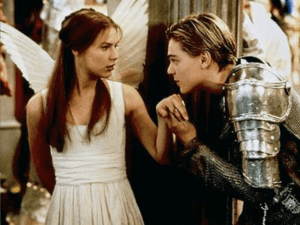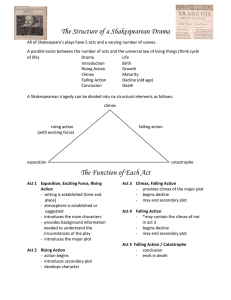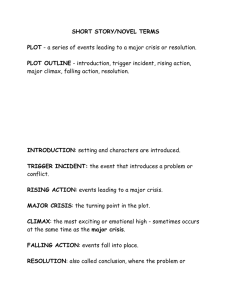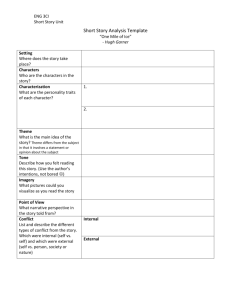Dramatic Structure • Classical Dramatic Structure: 1. Rising action 2. Climax
advertisement
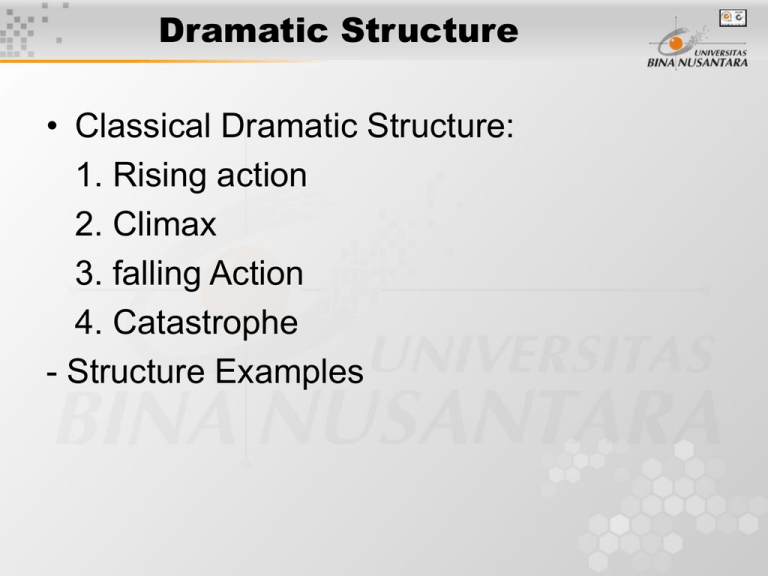
Dramatic Structure • Classical Dramatic Structure: 1. Rising action 2. Climax 3. falling Action 4. Catastrophe - Structure Examples Dramatic Structure • Structure refers to the total organization of a literary work. When we delineate the structure we are, in effect, making a summary of the full scheme of plan of the work. • In essence, analysis of structure is twofold; we begin by outlining the way in which the play is put together, and then suggest reasons why the playwright chose a particular way of assembling the events of the play Classical Tragic Structure • One of the most dominating theories of structure is that which classically pertained to tragedies. Because a tragedy deals with conflict, ancient critics thought of the plays as tying and untying knots. • In any case, the view of tragedy has frequently and consistently taken a dividing approach which separates the events of the play into 4 categories: rising action, climax, falling action, catasthrope Rising Action • Rising action is the entire first part of the play in which the forces creating conflict are delineated, enlarged, and prepared for some disaster. • Preceding the rising action there is often what we simply call “introduction” or “exposition”, a short section directly in the beginning in which we are made acquinted with certain facts Climax • The first major pause in the play occurs when the hero makes a decision or makes some all-important discovery about either himself or someone else in the play, the act which interrupts everything else that is happening, is always referred to as climax. Falling Action • The falling action follows the climax and usually presents the way in which the hero is slowly overpowered and becomes increasingly helpless. We see him as representative of man bound up in a fate which he is powerless to master Catastrophe • The catastrophe is the main action of the play and is often a death, usually the death of the hero of the heroine. Catastrophe is the one event in the play toward which everything else has been working, either directly or indirectly. • It fulfills the audience’s expectation Structure Examples • Death of a Salesman: The rising action would describe all of the opening false of optimism of Willy Loman, his pride in his two sons, his feelings of superiority over his neighbor, his hopes for the future. Structure examples • Antigone: Like so many Greek tragedies, Antigone deals with the way in which a noble man brings death upon his family because of his own tragic flaw of pride.
